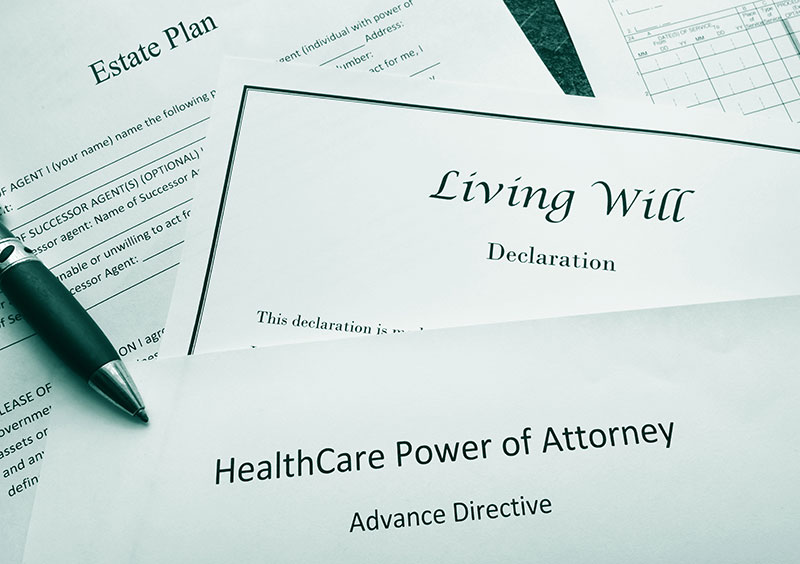Estate Planning Greensboro
Estate Planning Services Tailored to Your Goals
You want peace of mind knowing that your affairs are in order and your family is provided for and protected. We focus on helping you prepare for both expected and unexpected changes in life.
We draw on decades of experience, empathy and our client-centered approach to prepare your thorough and effective estate plan. We will listen and work closely with you to develop an estate plan that meets your individual needs and goals as well as the needs of your family and business interests.

Experienced Assistance in a Personalized Setting
Our law firm helps people with estates of all sizes. Our legal work ranges from simple wills to complex family and business planning designed to transfer assets with maximum certainty, control and tax benefits.
We provide foundational and advanced estate planning, including:
- Preparation of wills and trusts
- Revocable living trust
- Financial powers of attorney
- Health care powers of attorney
Estate planning allows your loved ones to avoid the expense, frustration, and inconvenience of the probate process. After someone’s passing, we assist families with our estate administration and trust administration services. We can also review and update your existing plan to reflect your new wishes or changed circumstances.

There are several ways to direct how your property will pass following your death. Assets like houses and bank accounts are often jointly titled with rights of survivorship. These assets pass directly to the surviving joint owner, regardless of what your will says, and do not pass through probate. Additionally, assets that have beneficiary designations in place, like life insurance and retirement accounts, are not subject to a will and usually do not pass through probate. The only assets that are subject to a will are assets titled in your own name that do not have beneficiary designations, like stock, real property, automobiles, business interests and individually titled bank accounts.
We can help you decide which documents you should use in your estate plan. The work we do is not simple. Estate planning is a highly technical field. There are a lot of moving parts, and each part can be of critical importance. That said, we are committed to explaining your plan to you in a simple manner. What good is an estate plan if you do not understand how it works to meet your needs? You will leave our meeting with that understanding.
In addition, we will provide you with the simplest solution possible. We are not in the business of upselling. We do not use scare tactics to sell you more of an estate plan than you actually need. You will receive the right estate plan for you, tailored to accomplish your specific goals.
Wills
The most common document in an estate plan is a will. A will sets out a person’s wishes for the disposition of his or her assets following death. A will can also be used to name a guardian for minor children. A will is carried out through the probate process. A will can be amended or revoked (often using a codicil) at any time until you no longer have the mental capacity to do so or you pass away. There are formalities in place to make sure that a will is authentic and is actually what the testator (the person making the will) wants. Each state has its own rules about what makes a valid will, which is why relocating should prompt a visit to a local attorney to make sure your will is still enforceable. Generally, a will must be in writing, requires witnesses and a notary, and must be signed by an adult who is of sound mind, is not being coerced and knows what he or she wants.
Revocable Living Trust
A revocable or living trust is often a part of a client’s estate plan and can be used for incapacity planning and to simplify probate. A trust is a separate legal entity, like a corporation or an LLC (limited liability company), which can own assets. The grantor creates the trust and in the trust document sets forth directions about how trust property should be managed and names the beneficiary(ies) who will benefit from the property. The grantor also names a trustee to manage the trust property on behalf of a trust beneficiary.
Because a trust’s authority can extend beyond your life and provides the rules for how your property is to be managed and shared, a revocable trust is an excellent will substitute. Remember that only assets titled in a deceased person’s name are part of the probate estate. If you create a trust and transfer property into the trust during your life, then upon your death, those assets do not need to go through probate. Rather than be part of a legal proceeding, the trustee will follow the private directions you set forth in the trust to distribute the assets or hold them for your beneficiaries. If you title substantially all your assets in the trust, very little will need to pass through probate. And since probate fees are based on the value of the probate estate, the fewer the probate assets, the smaller the fees.
A revocable trust is a particularly useful tool to avoid ancillary probate. Ancillary probate is a separate legal proceeding required to transfer title of out-of-state real property at death. It is held in every state where the decedent owned real property. To avoid these costly proceedings, you can transfer the title of the real property into a revocable trust. You still retain full control of your property, but eliminate the need for your loved ones to open ancillary probate estates upon your death.
Note that creating a trust does not simplify probate. Instead, you have to transfer the title of your property into the trust to avoid probate for those assets. Also, revocable trust assets are not protected from the grantor’s creditors. Further, it may be wise to open a probate estate, even when there are few assets in the decedent’s name, to give a finite window of time for a decedent’s creditors to make claims.

Financial Power of Attorney
A Financial Power of Attorney is a legal document granting someone the power to handle your financial affairs. You can limit these powers as you see fit, typically completed in a standardized form. For planning purposes, you can create the power to begin only upon an event [incapacitation] or you can give authority right away. If you give a power right away it can either stop when an event occurs [incapacitation] or it can still be effective after that event. It is called a “springing” power of attorney if it is only effective if you are incapacitated. It is called a “durable” power of attorney if the powers are granted while you are of sound mind but lasts beyond incapacitation.
Health Care Power of Attorney
A HCPOA (health care power of attorney) is a legal document where you grant the ability for someone else to make health care decisions for you if you are unable to make these decisions on your own. Your agent is restricted to act in your best interest and in accordance with any wishes or restrictions you have written in the document. The power granted is only effective if you are unable to make those decisions on your own. This document should also be witnessed by two individuals and notarized.
Make an Appointment to Speak with Us
Call us today at (336) 333-7907 to schedule an initial consultation with an estate plan lawyer. Help is available to all families in the Greensboro, North Carolina, area. You can also contact us online and make an appointment to learn more about how we can help you.
Whether you are married or single, filling out our estate planning questionnaire will help make the estate planning process as simple and efficient as possible.
